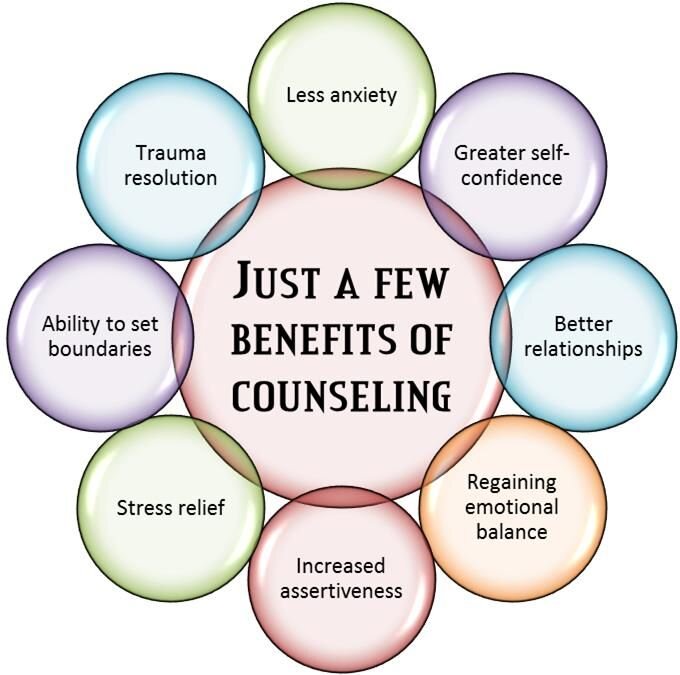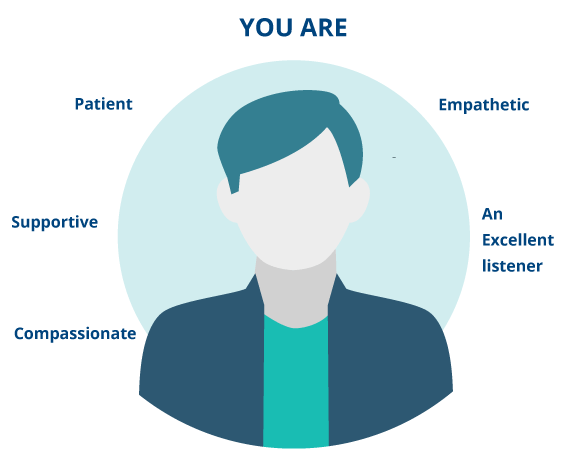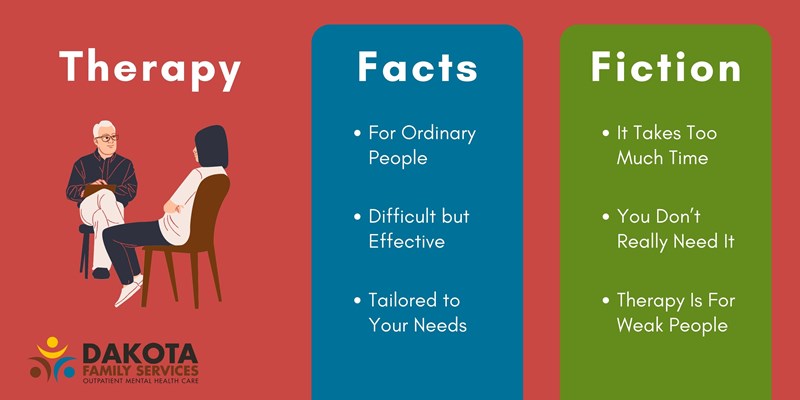The Importance of Mental Health And Wellness: a Deep Dive Into Counseling, Treatment, and Their Advantages
Mental health substantially forms specific health, affecting emotions, ideas, and actions. Therapy and therapy act as important methods for recovery and individual advancement. They use organized support, aiding people navigate life's challenges. Yet, several continue to be not aware of the details kinds of treatment offered and their distinct benefits. Understanding these elements is very important for anybody taking into consideration expert mental health assistance. What adheres to may illuminate paths to durability and satisfaction that several overlook.
Recognizing Mental Wellness and Its Impact
Although mental health is typically ignored, it plays a crucial role in total health and everyday functioning. It encompasses psychological, emotional, and social aspects that affect how people believe, feel, and act. An individual's psychological wellness straight affects their ability to manage anxiety, associate to others, and make options. Poor mental health and wellness can result in numerous concerns, consisting of anxiousness, anxiety, and difficulty in maintaining connections, all of which can hinder personal and specialist growth.Furthermore, psychological health has significant implications for physical health and wellness. Persistent anxiety and unattended mental problems can add to various physical ailments, such as heart problem and damaged immune reactions. On the other hand, favorable mental wellness fosters resilience, making it possible for individuals to manage life's difficulties successfully. Understanding psychological health and wellness's significance is important for cultivating supportive atmospheres that promote emotional well-being, therefore improving the lifestyle for areas and people alike
The Various Kinds Of Therapy and Treatment
In the domain name of mental wellness, different counseling and therapy kinds deal with diverse requirements. Private therapy methods concentrate on personal problems with individually sessions, while group therapy characteristics foster shared experiences and assistance amongst individuals. Understanding these methods is crucial for picking the suitable treatment for different difficulties.
Specific Therapy Approaches
Numerous private counseling strategies exist, each designed to address certain psychological health and wellness problems and provide to varying client requirements. Cognitive Behavior Treatment (CBT) concentrates on determining and changing unfavorable idea patterns, while Psychodynamic Treatment explores unconscious processes and previous experiences. Humanistic Therapy highlights personal growth and self-actualization, cultivating a supportive environment. Social Therapy (IPT) targets partnership concerns and communication patterns to improve psychological well-being. Furthermore, Acceptance and Commitment Therapy (ACT) urges clients to approve their thoughts and sensations while committing to personal worths. Each technique offers distinct techniques and ideologies, allowing professionals to tailor their methods to the person, consequently enhancing the therapeutic experience and promoting mental health and wellness healing.
Team Treatment Dynamics
Team therapy characteristics include numerous healing techniques that leverage the power of common experiences and interpersonal relationships. This form of therapy typically includes diverse teams, promoting a secure setting for participants to reveal sensations and thoughts. Secret kinds of group treatment include support teams, which provide psychological support; process-oriented teams, concentrating on interpersonal communications; and psychoeducational teams, focused on imparting knowledge concerning psychological health concerns. The dynamics within these groups can enhance self-awareness, as members frequently mirror on their behaviors in connection to others. Furthermore, group therapy promotes a feeling of belonging, minimizing sensations of seclusion. Through shared narratives and cumulative problem-solving, individuals can develop coping strategies and obtain understandings, ultimately adding to private growth and recovery.
The Duty of Therapy in Mental Health
Counseling plays an important role in psychological wellness by using numerous approaches customized to private demands. These approaches give professional assistance that can result in significant improvements in psychological well-being. Understanding the various kinds of therapy can aid individuals make informed choices about their mental healthcare.

Kinds Of Counseling Approaches
While different therapy approaches exist, each deals special methods and insights into mental health therapy - Mental Health Resources. Amongst the most noticeable are cognitive-behavioral treatment (CBT), which concentrates on changing unfavorable thought patterns; psychodynamic therapy, which discovers unconscious procedures and youth experiences; and humanistic strategies, stressing individual growth and self-actualization. Furthermore, solution-focused quick therapy prioritizes finding services in today instead than diving right into issues. Team therapy cultivates community and shared experiences, while family therapy addresses relational characteristics within familial frameworks. Each method satisfies various demands, lining up with specific choices, concerns, and healing objectives. Recognizing these techniques aids customers make educated selections concerning their mental health and wellness journey and advertises efficient therapy tailored to their one-of-a-kind conditions
Benefits of Specialist Assistance
Many people take advantage of specialist assistance in managing their mental health and wellness challenges. Counseling provides a safe room for customers to discover their thoughts and feelings without judgment. This healing atmosphere cultivates self-awareness, permitting individuals to determine patterns in their behavior and create healthier coping strategies. Expert advice also provides accessibility to evidence-based methods that can relieve signs of stress and anxiety, clinical depression, and various other mental wellness issues. Therapists can assist in setting realistic objectives and offer assistance in web link achieving them, improving general wellness. The collective partnership in between counselor and client is crucial, as it promotes accountability and encourages personal growth. Eventually, specialist advice plays an important function in guiding psychological wellness trips, resulting in boosted psychological durability and life complete satisfaction.
Advantages of Therapy: Healing and Development

Exactly how to Select the Right Therapist or Counselor
Just how can one browse the usually overwhelming process of selecting the right therapist or therapist? Identifying personal requirements is necessary; people should consider their specific concerns, whether depression, relationship, or anxiety challenges. It is helpful to research various restorative techniques, such as cognitive-behavioral treatment or psychodynamic therapy, to find an ideal match.Next, potential clients must seek referrals from read the article trusted sources or make use of online directory sites. It is vital to assess specialists' credentials, including their education, licensing, and locations of field of expertise. Setting up initial examinations can help determine compatibility, permitting people to assess interaction styles and personal comfort.Finally, logistical variables, such as area, accessibility, and costs, must also be taken into consideration. By attentively considering these aspects, one can make an educated choice, ultimately promoting a therapeutic connection that supports mental health and wellness and individual growth.
Overcoming Preconception: Welcoming Mental Health Assistance
While societal perspectives towards mental wellness have advanced, stigma still presents a substantial barrier for lots of seeking assistance. This stigma frequently shows up as misunderstandings bordering mental disorder, leading individuals to really feel shame or concern regarding their struggles. Many individuals are reluctant to go after counseling or therapy due to fret about being evaluated or classified. Overcoming this preconception is fundamental for cultivating a supportive atmosphere where individuals can openly review their psychological health needs.Communities and organizations play an important function in this improvement by advertising recognition and education regarding psychological wellness problems. Efforts that highlight personal tales can humanize these experiences, encouraging others to look for help without concern. As acceptance grows, people might really feel much more equipped to accept psychological wellness assistance, acknowledging it as a vital element of general health. By dismantling stigma, culture can grow a society of understanding, concern, and proactive mental healthcare.
Strategies for Maintaining Mental Health Outside of Treatment
Treatment supplies useful support, preserving mental well-being outside of sessions is just as important. People can apply a number of methods to sustain their mental health and wellness. Normal exercise plays an important function, as workout promotes the release of endorphins, which enhance mood. In addition, a well balanced diet regimen abundant in my review here nutrients can greatly affect emotional security and energy levels.Practicing mindfulness and reflection assists people take care of anxiety and establish greater self-awareness. Developing a constant sleep regimen is likewise essential, as quality remainder is vital for cognitive feature and emotional regulation.Engaging in social activities cultivates link and decreases feelings of isolation. Pursuing interests or leisure activities can supply an innovative outlet and increase self-worth. Practicing and establishing practical objectives self-compassion allows people to cultivate resilience. By integrating these methods right into life, individuals can properly sustain their mental wellness beyond therapy sessions.
Regularly Asked Questions

Just How Can I Inform if I Need Treatment?
Establishing the demand for therapy usually involves identifying persistent feelings of sadness, anxiousness, or frustrating stress. If everyday operating comes to be tough or coping mechanisms fail, seeking specialist support may be a beneficial advance.
What Should I Anticipate in My First Therapy Session?
In the very first therapy session, people can expect an introduction, discussion of their factors for seeking help, and an introduction of the therapist's approach, producing a foundation for future discussions and establishing comfort in the healing space.
Are Online Therapy Procedure as Effective as In-Person Ones?
Research study suggests that online treatment sessions can be as effective as in-person ones. Aspects such as the therapist's credentials, customer engagement, and the healing partnership greatly affect end results, no matter of the medium used.
Can Therapy Aid With Connection Concerns?
Treatment can aid people in dealing with connection concerns by providing devices for interaction, recognizing feelings, and resolving disputes. Cognitive Behavioural Therapy. It advertises much healthier dynamics and motivates personal growth, ultimately fostering more powerful, extra satisfying connections between partners
The Length Of Time Does Therapy Generally Last?
Treatment duration varies substantially based on individual requirements and objectives. Normally, sessions may last from a few weeks to several months, with some individuals engaging in ongoing therapy to resolve long-lasting worries and personal growth. Cognitive Behavior Therapy (CBT) focuses on identifying and changing negative idea patterns, while Psychodynamic Treatment discovers unconscious processes and previous experiences. Secret types of team treatment include assistance groups, which supply emotional assistance; process-oriented teams, concentrating on interpersonal communications; and psychoeducational teams, intended at passing on knowledge regarding psychological wellness problems. Amongst the most famous are cognitive-behavioral therapy (CBT), which focuses on modifying unfavorable thought patterns; psychodynamic therapy, which explores unconscious processes and youth experiences; and humanistic techniques, emphasizing personal growth and self-actualization. Group treatment cultivates neighborhood and shared experiences, while family treatment addresses relational characteristics within domestic structures. It is beneficial to research study numerous restorative approaches, such as cognitive-behavioral therapy or psychodynamic treatment, to find an ideal match.Next, possible customers ought to look for references from trusted resources or utilize on the internet directories.